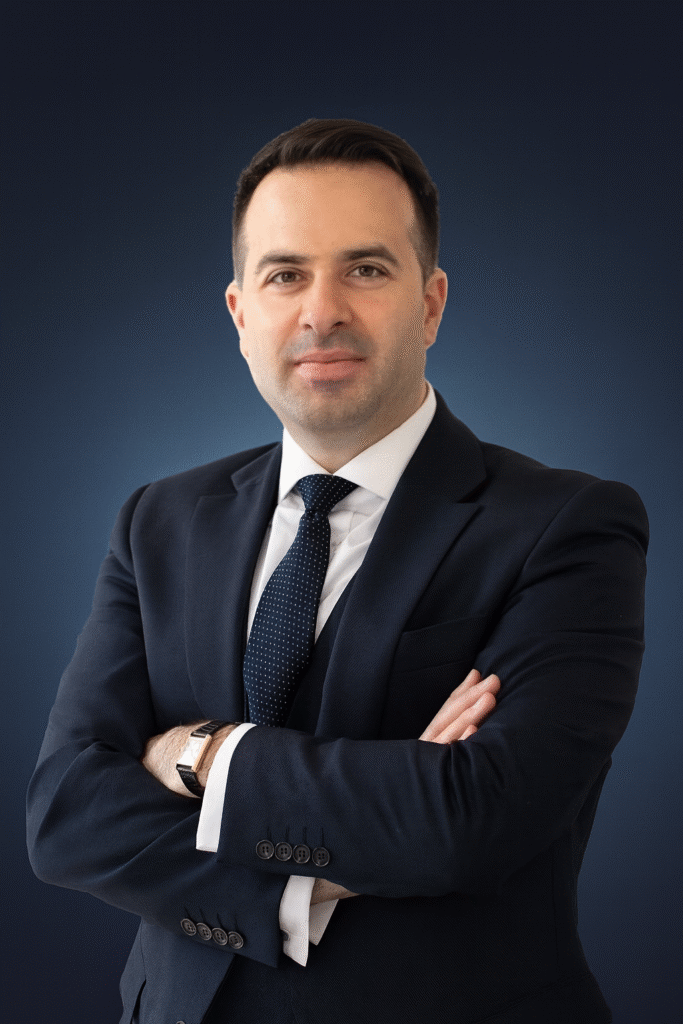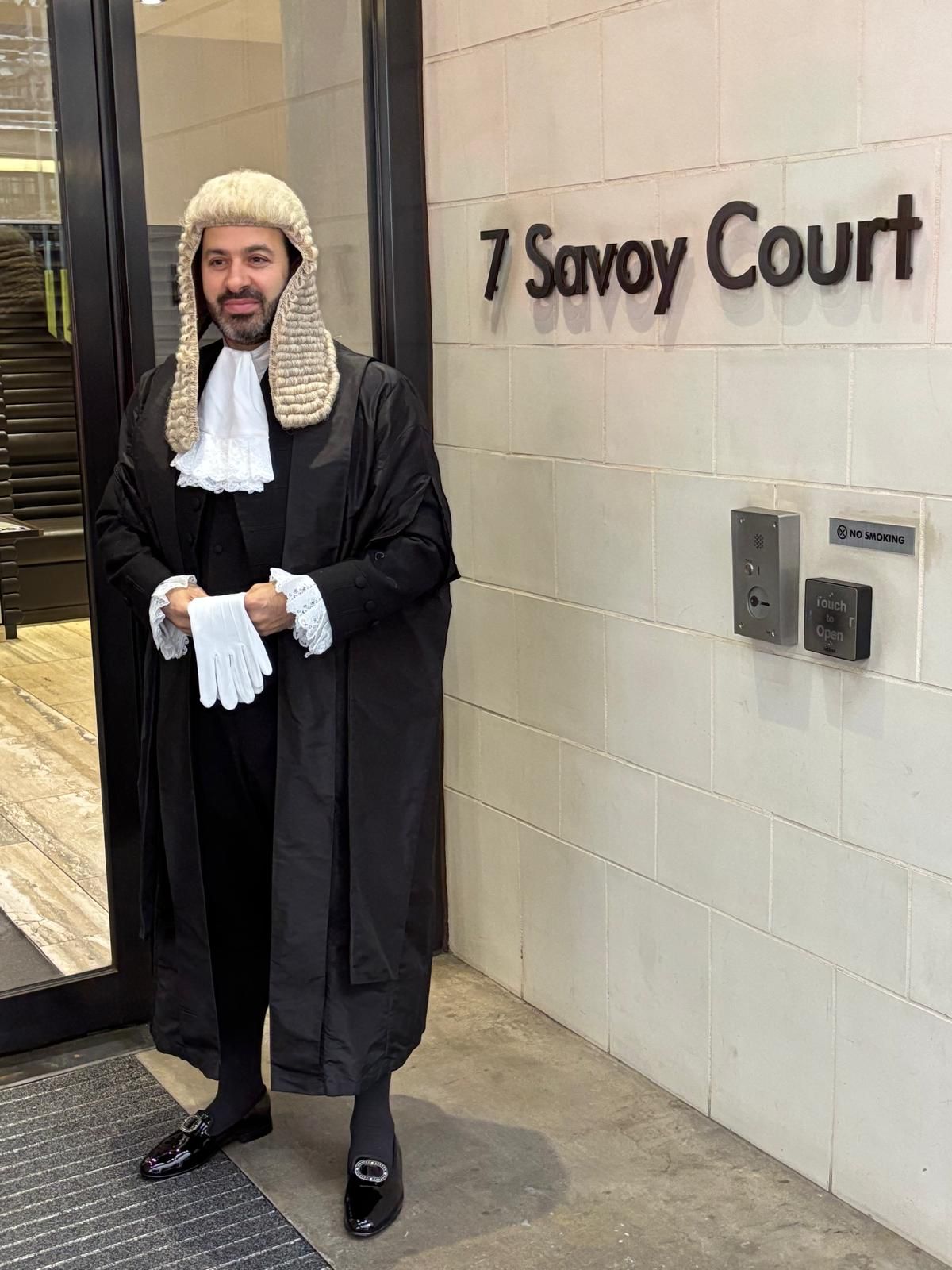King's Counsel
Thomas Schofield KC
Criminal Appeals and Trials Specialist
Thomas Schofield KC is a specialist criminal and regulatory practitioner, with a nationwide practice and a proven track record of success.
Tom’s strength lies in his complete commitment to every case in which he is involved.
- Year of Call: 2001
- Year of Silk: 2025
- 25+ Years of Experience
- Chambers & Partners Ranked


Kings Counsel
Thomas Schofield KC
Thomas Schofield KC was described by a former Lord Chief Justice of England and Wales, (Lord Thomas of Cwmgiedd, PC), as making ‘attractive and measured submissions’ and advancing his arguments ‘eloquently’ in a complex sentencing appeal.
He was commended by the former Vice President of the Criminal Division of the Court of Appeal (Lady Justice Hallett, DBE PC) for leading the submissions in a complex 6 appellant appeal against conviction and concerning the principle of joint enterprise, and by the current Vice President (Lord Justice Holroyde, PC) for ‘presenting the applicant’s case with considerable skill’ in an important appeal against conviction.
He was complimented by Lord Justice Haddon-Cave for his ‘able’ submissions opposing an application to lift reporting restrictions, in a complex and high-profile case; and was praised by another former Lord Chief Justice (Lord Burnett of Maldon, PC) for his succinct and powerful submissions in a successful appeal against a wasted costs order made against a solicitor.
Background
Former Treasury Counsel Monitoree - Former Level 4 Prosecutor - Previous Security Clearance
Specialisms
Criminal & Regulatory Law - Fraud & Money Laundering - Asset Recovery & Confiscation
Notable Courts
Supreme Court Appeals - Court of Appeal (Criminal Division) - Investigatory Powers Tribunal
Areas of Expertise
Specialising in complex legal matters with a proven track record of successful outcomes for individuals, corporations, and international clients.
Criminal Defence
Fraud and money laundering, complex drugs conspiracies, organised crime, terrorism, and serious sexual offences with nationwide practice.
Asset Recovery & Confiscation
Confiscation proceedings, restraint orders, cash forfeiture, account freezing orders, and unexplained wealth orders with extensive Court of Appeal experience.
Regulatory Law
Professional discipline, director
disqualification, health and safety prosecutions, trading standards, and regulatory breaches across multiple sectors.
Investigatory Powers Tribunal
Specialist expertise in IPT proceedings, covert surveillance complaints, telephone interception, and device interference cases.
Fraud & Financial Crime
Multi-million pound frauds, cyber-frauds, MTIC frauds, binary options fraud, and complex financial investigations. involving international elements.
Appeals & Supreme Court
Extensive Court of Appeal and Supreme Court experience, with landmark cases establishing legal precedents in criminal and confiscation law.
Thomas Schofield has a particular expertise in cases of fraud (including missing trader intra community frauds, cyber-frauds, long-firm and diversion frauds). Tom’s previous fraud cases involve: a multi-million pound Binary options fraud; numerous alcohol diversion and excise frauds, usually worth £100 million or more; attacks on the Carbon Credit registries of the United Nations, the Federal Republic of Germany and the Kingdom of Spain; and a control word sharing fraud worth over £50 million on Virgin Media using offshore proxy servers. Tom also accepts instructions in civil frauds.
Tom provided pre-appeal pro bono advice to 16 of the sub-postmaster and mistresses whose convictions were subsequently were overturned owing to the Post Office Horizon scandal.
Thomas Schofield KC is a former Treasury Counsel monitoree 2017-2020. The origins of Treasury Counsel are steeped in history. As long ago as 1834, there was a plan to appoint full-time public prosecutors at the Central Criminal Court (the Old Bailey) although it was not until 1879 that two counsel had been appointed to prosecute full-time for the Crown. In 1888, the then Attorney General recommended to the Departmental Committee on the legal business of Government that the number of Treasury Counsel be increased. Today, there are usually sixteen Treasury Counsel based at the Central Criminal Court, divided into two groups of eight Senior and eight Junior Treasury Counsel. During Tom’s tenure as a monitoree, he prosecuted homicides at the Old Bailey and frequently acted for Her Majesty’s Attorney General and Solicitor General in sentence cases referred to the Court of Appeal (Criminal Division) for being unduly lenient.
Before taking silk, Tom was a Level 4 prosecutor. He is security cleared by the government, and as such is able to accept instructions in cases involving offences affecting national security or the disclosure of material affecting national security. Tom has also been instructed by the CPS to provide pre-charge advice and authorise charges in respect of some of the most serious cases dealt with by the Public Protection Unit. Tom has also been instructed by the CPS Appeals Unit to review ‘cold cases’ or where there has been an application for permission to appeal many years ‘out of time’.
Tom has experience of advising in respect of and conducting private prosecutions.
Notable Cases
A selection of significant cases that Thomas Schofield KC has demonstrated expertise across various legal disciplines.
R v XX (2024)
Defended at the early stages of a case of theft of a piece of art (a toilet made from solid gold and worth £5 million) called ‘America’ from Blenheim Palace.
R v AH (2024)
Defending in Southwark Crown Court in a multi-million pound alcohol diversion fraud. Issues of abuse of process owing to delay and fitness to plead.
R v JC (2024)
Defended in the lead EncroChat case (Operation Embossed II) at Manchester Crown Court. Involved complex cryptographic expert evidence
R v PR (2023)
Defended in Liverpool Crown Court in the case involving a man who assisted the killer of Olivia Korbel Pratt, ex post facto
Get Expert Legal Counsel
Contact chambers directly for urgent matters or schedule a consultation to discuss your legal requirements with Thomas Schofield KC.
Request a Consultation
Chambers Contact
- Direct Line: 0345 210 5555
- Email: tls@no5.com
- Chambers Address: No5 chambers 5th Floor, 7 Savoy Ct, London WC2R 0EX
Consultation Hours
9:00AM – 6:00PM
